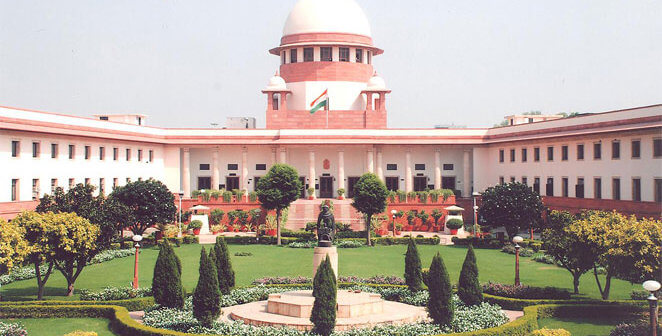The Centre’s affidavit will be considered on Tuesday by a five-judge Constitution bench headed by Chief Justice D Y Chandrachud, which is scheduled to hear petitions challenging the abrogation of Article 370 that gave special status to the erstwhile state of Jammu and Kashmir. Several petitions challenging the Centre’s decision to abrogate provisions of Article 370 and the Jammu and Kashmir Reorganisation Act, 2019 were heard by a Constitution bench in 2019. Was sent.
Earlier, the Centre filed its affidavit in the apex court on Monday defending the abrogation of Article 370 of the Constitution. Informing the Supreme Court, the Centre said the entire region of Jammu and Kashmir has witnessed an “unprecedented” era of peace, progress and prosperity, with street violence by terrorists and separatist networks, becoming a “thing of the past”. , news agency PTI reported.
The central government said that organised stone-pelting incidents linked to the militancy-separatist agenda, which stood at 1,767 in 2018, have come down to zero so far in 2023, and the number of casualties of security personnel has seen a decline of 65.9 per cent as compared to 2022. 2018.
It argued that the “historic constitutional step” being challenged has led to unprecedented development, progress, security and stability in the region, which was often missing during the old Article 370 regime. This has been possible due to the policy of the Union of India to ensure peace, prosperity and progress in the region, the affidavit said.
“It is submitted that hosting the G-20 Tourism Working Group meeting in Srinagar in the month of May 2023, was an important event in the history of Valley Tourism and the country proudly demonstrated its firm commitment to the world that the separatist terrorist region can do so.Oh. Convert it into an area where international dignitaries can also be invited and global events can be organized. Covering its entire governance – including developmental activities, public administration and security matters – which has positively impacted every resident irrespective of caste, creed or religion. ”
It said that the shutdown and stone-pelting (together) organised, funded and forced by the separatist-terrorist network had a tremendous negative impact on the economy and society as a whole.
“It is submitted that the defining feature of the security situation in the region, which has a direct bearing on the daily lives of ordinary citizens, is ‘street violence’ which was a systematic and regular occurrence. Street violence, created and driven by terrorists and separatist networks, is now a thing of the past. The incidents of organised stone-pelting linked to the militancy-separatist agenda, which were up to 1,767 in the year 2018, have come down to zero so far in the year 2023,” the Centre said in its 20-page affidavit, according to PTI.
The ‘shutdown’ and stone-pelting resulted in closure of schools, colleges and universities, trade, industries and businesses on a regular basis, causing severe loss to the income, especially of the poor and those working in the unorganised sectors, it said.
In the year 2018, there were 52 incidents of organized ‘shutdown/strike’, which has come down to zero so far in the year 2023. Further, resolute counter-terrorism actions have resulted in the destruction of the terror eco-system, which has declined from 199 in 2018 to 12 in terrorist recruitment so far to 12 in 2023.
The government said work on transit accommodation for the safe return of Kashmiri Pandits to the Valley is at an advanced stage and is expected to be completed in the next one year.
On August 5, 2019, the Centre decided to strip the erstwhile state of Jammu and Kashmir special status and bifurcate it into two Union Territories.





